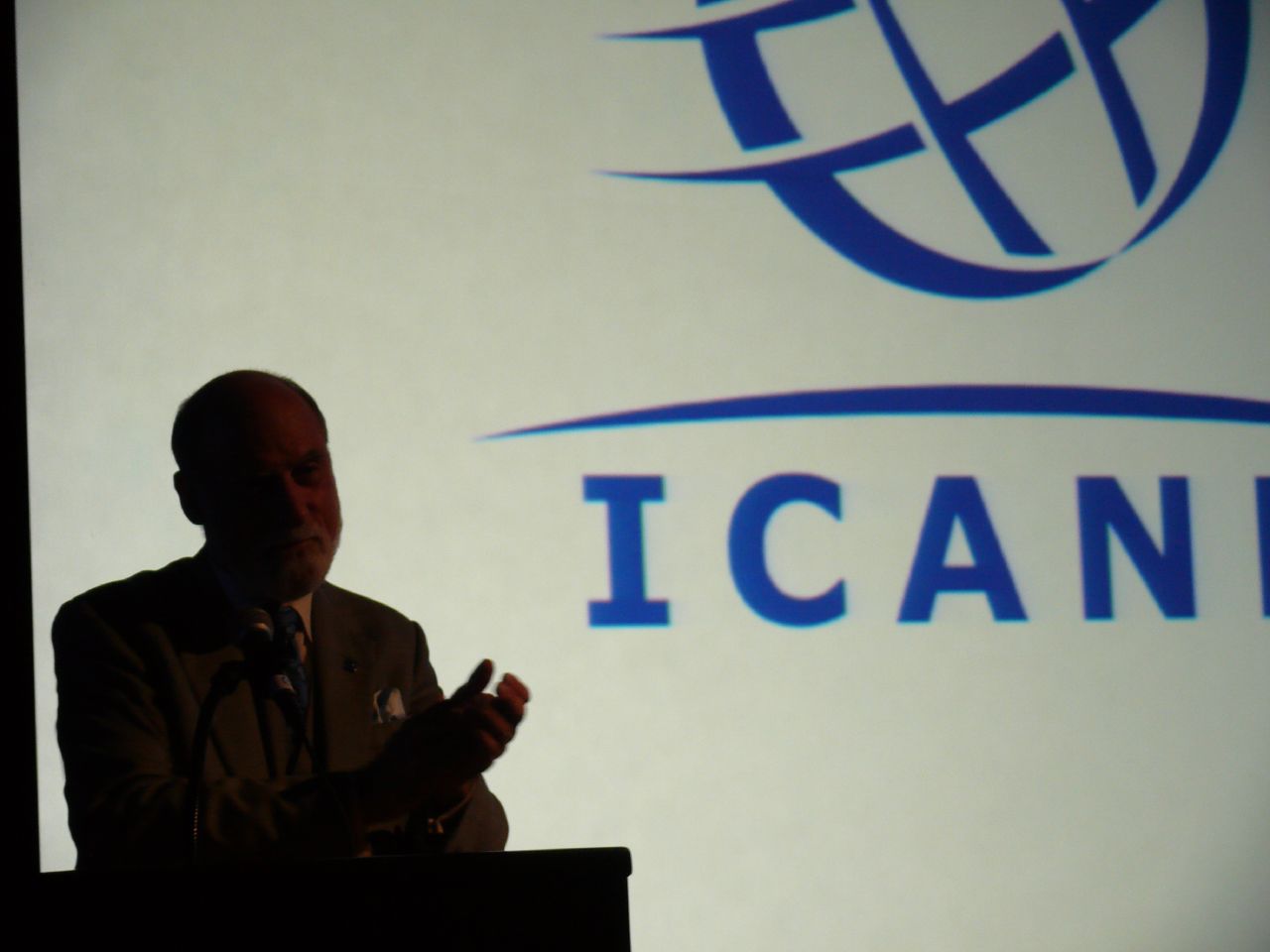An Alberta judge has ordered a former employee of a bike shop to pay $15,000 in damages after he registered a competing domain name and forwarded it to a pornographic website. The bike shop used a dot-ca domain and the ex-exployee registered the dot-com version.

Vint Cerf at ICANN by Veni (CC BY 2.0) https://flic.kr/p/3KWko9
Internet Governance
FTC Shuts Down Canadian Domain Name Scammers
The U.S. Federal Trade Commission has shut down the illegal practices of Canadian operators who deceptively posed as domain name registrars and sent bogus bills to thousands of U.S. small businesses and nonprofit organizations.
CIRA Creates Backdoor WHOIS Exceptions for Police and IP Owners
Earlier this year, I wrote glowingly about the new CIRA whois policy, which took effect today and which I described as striking the right balance between access and privacy. The policy was to have provided new privacy protection to individual registrants – hundreds of thousands of Canadians – by removing the public disclosure of their personal contact information (though the information is collected and stored by domain name registrars).
Apparently I spoke too soon. Faced with the prospect of a privacy balance, special interests representing law enforcement and trademark holders quietly pressured CIRA to create a backdoor that will enable these two groups (and these two groups alone) to have special access to registrant information. In the case of law enforcement, police can bring cases to CIRA involving immediate risk to children or the Internet (ie. denial-of-service attacks) and CIRA will hand over registrant information without court oversight. In the case of trademark holders (as well as copyright and patent owners), claims that a domain name infringes their rights will be enough to allow CIRA to again disclose registrant information.
This represents a stunning about-face after years of public consultation on the whois policy.
Canadian Press on CIRA Whois Change
The Canadian Press covers the upcoming CIRA Whois change, with CIRA President Byron Holland promoting the fact that the policy will put CIRA at the forefront internationally and acknowledging that the current approach is not consistent with the spirit of the law (I think a strong case can be made […]
New CIRA Whois Policy Strikes Balance Between Privacy and Access
My weekly technology law column (Toronto Star version, homepage version) focuses this week on the new CIRA whois policy that is scheduled to take effect on June 10, 2008. The whois issue has attracted little public attention, yet it has been the subject of heated debate within the domain name community for many years. It revolves around the whois database, a publicly accessible, searchable list of domain name registrant information (as in "who is" the registrant of a particular domain name).






